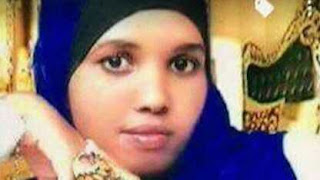How Australia turned it's back on the refugee Crisis
As the world works to resolve a major internationalrefugee crisis, Australia just wants them to go away.At the recent World Humanitarian Summit in Istanbul, U.N. Secretary-General Ban Ki-moon called on the international community to find new long-term solutions for refugees.In Australia, however, political debate is more often about ways to stop refugees from reaching the country, especially in the lead up to that country's national election on July 2.Amid a record number of displaced people around the world, including an estimated nine million people in Asia, restrictive asylum policies have implications for refugee protection across the region and the world.There are only a handful of signatories to the Refugee Convention in Southeast Asia, and Australia is one of them.It therefore has a responsibility to offer access to fair and efficient procedures for the determination of refugee claims.
Refugees turned back at sea
Currently, a policy of turning back asylum seeker boats at sea is supported by the two main political parties, the center-right Liberal/National Coalition and center-left Labor, but rejected by minor party the Australian Greens.The issue of "turn-backs" has resulted in breaches of international law and caused tension with Indonesia, while asylum seekers have been interrogated and jailed upon their forced return to Vietnam and Sri Lanka.A focus on deterring asylum seekers limits the promotion of human rights in the region and farther afield, and impedes the achievement of a protection framework that is so sorely needed.Australia has refrained from publicly commenting on human rights violations committed by those countries with whom it cooperates on turning asylum seeker boats back.It declined to back a 2014 U.N. resolution for an international inquiry into alleged atrocities during the closing stages of the Sri Lankan civil war, and since then both the current Sri Lankan Prime Minister, Ranil Wickremesinghe, and the former Australian Prime Minister Tony Abbott, have confirmed that support for the Rajapaksa government secured its assistance in preventingg Sri Lankans from fleeing to Australia.
Human right violations dismissed
Australia is now lobbying for a seat on the U.N. Human Rights Council from 2018 to 2020, although it received criticism under the second Universal Periodic Review for its refugee policies.The U.N. Special Rapporteur on Torture found that Australia has violated the rights of asylum seekers,including children, to be free from torture or cruel, inhuman or degrading treatment -- findings that were publicly dismissed by former Prime Minister Abbott.Papua New Guinea and the small Pacific island nation of Nauru continue to hold around 2,200 asylum seekers and refugees, under Australia's offshore detention, processing and settlement arrangements.The offshore regime has influenced immigration debates in Europe, but its future is now uncertain.The Papua New Guinea Supreme Court ruled in April 2016 that the detention center in that country is illegal and is moving to close it, while Nauru cannot offer permanent settlement for those detainees found to be refugees.
Deal with Canada?
The minority party the Greens have pledged to bring these asylum seekers and refugees to Australia, while the Coalition and Labor insist they must be sent to third countries.Third country alternatives have proved elusive, but the idea has attracted criticism around the world.In 2014, the Coalition paid $55 million (US$41 million) for a failed resettlement deal with Cambodia, and Cambodian opposition MPs have urged the Australian government to reconsider the arrangement.The Coalition government has also tried to secure resettlement for refugees in Kyrgyzstan and the Philippines, and now both Labor and the Coalition have fueled rumors that they will seek to negotiatethe settlement of refugees in Canada.Officials at Citizenship and Immigration Canada have said that no approach has been forthcoming, but with Canada having now resettled 25,000 Syrian refugees, compared to Australia's few hundred, the Canadian press have been quick to denounce the idea that their country should provide the easy answer to Australia's political issue.
UN asks Australia to take more refugees
Source:CNN
Refugees turned back at sea
Currently, a policy of turning back asylum seeker boats at sea is supported by the two main political parties, the center-right Liberal/National Coalition and center-left Labor, but rejected by minor party the Australian Greens.The issue of "turn-backs" has resulted in breaches of international law and caused tension with Indonesia, while asylum seekers have been interrogated and jailed upon their forced return to Vietnam and Sri Lanka.A focus on deterring asylum seekers limits the promotion of human rights in the region and farther afield, and impedes the achievement of a protection framework that is so sorely needed.Australia has refrained from publicly commenting on human rights violations committed by those countries with whom it cooperates on turning asylum seeker boats back.It declined to back a 2014 U.N. resolution for an international inquiry into alleged atrocities during the closing stages of the Sri Lankan civil war, and since then both the current Sri Lankan Prime Minister, Ranil Wickremesinghe, and the former Australian Prime Minister Tony Abbott, have confirmed that support for the Rajapaksa government secured its assistance in preventingg Sri Lankans from fleeing to Australia.
Human right violations dismissed
Australia is now lobbying for a seat on the U.N. Human Rights Council from 2018 to 2020, although it received criticism under the second Universal Periodic Review for its refugee policies.The U.N. Special Rapporteur on Torture found that Australia has violated the rights of asylum seekers,including children, to be free from torture or cruel, inhuman or degrading treatment -- findings that were publicly dismissed by former Prime Minister Abbott.Papua New Guinea and the small Pacific island nation of Nauru continue to hold around 2,200 asylum seekers and refugees, under Australia's offshore detention, processing and settlement arrangements.The offshore regime has influenced immigration debates in Europe, but its future is now uncertain.The Papua New Guinea Supreme Court ruled in April 2016 that the detention center in that country is illegal and is moving to close it, while Nauru cannot offer permanent settlement for those detainees found to be refugees.
Deal with Canada?
The minority party the Greens have pledged to bring these asylum seekers and refugees to Australia, while the Coalition and Labor insist they must be sent to third countries.Third country alternatives have proved elusive, but the idea has attracted criticism around the world.In 2014, the Coalition paid $55 million (US$41 million) for a failed resettlement deal with Cambodia, and Cambodian opposition MPs have urged the Australian government to reconsider the arrangement.The Coalition government has also tried to secure resettlement for refugees in Kyrgyzstan and the Philippines, and now both Labor and the Coalition have fueled rumors that they will seek to negotiatethe settlement of refugees in Canada.Officials at Citizenship and Immigration Canada have said that no approach has been forthcoming, but with Canada having now resettled 25,000 Syrian refugees, compared to Australia's few hundred, the Canadian press have been quick to denounce the idea that their country should provide the easy answer to Australia's political issue.
UN asks Australia to take more refugees
Secretary-General Ban personally urged the Australian government in November 2015 to recognize its international obligations toward refugees.The nation is already one of around 33 countries that agree to accept a particular number of refugees each year as a contribution to global resettlement efforts, and has a long history of involvement in regional refugee affairs.Ahead of a high-level U.N. General Assembly meeting this September that will aim to secure theequitable sharing of responsibility for refugees, this is the legacy on which Australia should build.Editor's Note: Claire Higgins is a research associate at the Andrew & Renata Kaldor Centre for International Refugee Law at the University of New South Wales in Sydney, Australia. The views expressed are her own.
Source:CNN




Comments